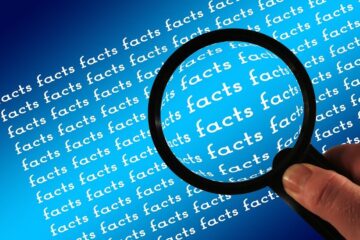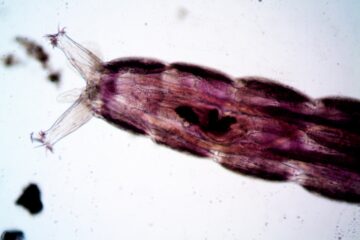![]()
Introduction
“The daily practice of Forensic Medicine and Forensic Sciences is closely related to human rights, as it implies the study of phenomena such as violent deaths, sexual crimes, gender-based violence, different forms of child abuse, torture, deaths in custody and patients’ rights.”[1]
Forensic Science is that part of the puzzle without which a criminal investigation cannot be solved. A world devoid of forensic science would be equal to a world were thieves, murderers, rapists and other criminals roam unchecked. Forensic science, today, plays an important role in detecting, reporting and prevention of human rights violation. Every human being enjoys the basic fundamental rights, Article 25 of the Universal Declaration of Human Rights and Article 21 of the Indian Constitution guarantee the right of life and liberty to every Indian citizen which also includes the right to health and conditions necessary for health. Considering health as a human right, the ethical issues like consent, malpractices, medico-legal cases, gender-based violence, mass disasters, disposal of dead, etc. require special consideration in relation to legal framework in India and human rights.
Another arena in humanitarianism where forensic science has played a major role is forensic humanitarianism which “entails the exhumation of mass graves in the effort to establish, forensically, the individual and collective identities of the dead victims of mass atrocity, and the causes of their deaths.”[2] Under Article 21 of the Indian Constitution, the right of dignity also extends to the right of dead persons. Forensic Humanitarianism essentially is an action to protect the basic fundamental rights using the tools provided by forensic science.
This article is divided into two major parts, daily practice of forensic science for protection of human rights of the living and that of the dead.
Protection of Human Rights of the Living
The role, forensic experts play in investigation of human rights violation is recognized by the United Nations. According to the UN, a forensic expert has a humanitarian as well as a legal role while investigating human rights violation.
Recently, the Indian legal system has recognized that the medical profession also comes under the Consumer Protection Act. It has been observed that there has been an increase in malpractice suits in India and here is where forensic experts come in. They hold a vital role in investigation of cases of negligence on part of the medical practitioner by conducting autopsies or by preserving specimen for further analysis. Forensic experts not only play a role in investigating cases related to physical health but also mental health. “National Human Right Commission of India has also shown deep concern about the conditions prevailing in the mental hospitals all over the country.”[3] These mental hospitals face problems such as overcrowding, lack of basic amenities and the medical facilities provided here are of very poor quality. There have been instances where ECT has been administered without the assistance of an anaesthetist. Forensic scientists are often called in to investigate deaths in these mental asylums.
In cases of violation of rights of children and the elderly, forensic experts are sometimes called upon. Rights of children include right to nourishment, protection from abuse and exploitation, right to health and care, etc. The Constitution itself provides that a child less than 14 years of age cannot be engaged as domestic servants or workers. The National Commission for Protection of Child Rights and Child Welfare Committees often send for analysis of cases of suspected violation of children’s rights. In India, due to socio-cultural reasons, exploitation of the elderly is under-reported. It is an important task for forensic practitioners to document and report the abuse of the elderly.
In sexual offences and gender-based violence, forensic evidence and forensic experts are often important for a conviction. Gender- based offences would include criminal abortions, infanticide and foeticide. A forensic expert may be required to investigate cases of abortion following an assault or cases of concealment following problems or catastrophic outcomes. Following an accident, abortion may occur, and an expert may be consulted for compensation considerations. Analysis of a living or dead female following a criminal abortion, as well as examination of aborted material by a forensic specialist, may yield significant clues for investigation. In case of sexual offences, “forensic expert conducts medical examination, document injuries and collection and preservation of samples in cases of natural and unnatural sexual assault.”[4]
Forensic experts play an important role in getting justice for victims of domestic violence and human trafficking. Under the Domestic Violence Act, 2005, any kind of physical, mental, sexual, emotional, verbal and economical abuse come under the ambit of domestic violence. Documentation and reporting by forensic experts are crucial in obtaining justice for the victim. Various protocols for forensic assessment of any injury caused by domestic abuse against women have been developed all around the world. Forensic experts play an important role in the medical examination of trafficked victims, which may include head-to-toe examination, documentation of injuries with duration, identification of patterned injuries, genital examination in cases of sexual assault or abuse, screening for STD, management of malnutrition, sample collection for the purpose of investigation and age estimation.
Protection of Rights of the Dead
In the recent years, the identification of victims of state crimes and violent conflicts and returning them back to their families and also collecting evidence that would help with their trials, has gained a lot of political and historical significance. In this context, the concept of forensic humanitarianism becomes quite relevant. On one hand, forensic humanitarianism plays a role in consolidating law and legal institutions by providing scientific tools to uphold the rule of law while on the other hand, it fulfils the humanitarian function of upholding the dignity of the dead. The humanitarian imperative for guaranteeing their correct recovery, management, analysis, and identification, to maintain their dignity and prevent them from becoming missing persons, stems from the shared responsibility for the deceased.
Forensic humanitarian work is done mostly by Forensic Anthropologists. They are hired by various state agencies, non-state agencies or international organisations. Forensic anthropologists acquire skeletonized remains and utilise physical or biological anthropology principles to determine two things: (1) the identity of the remains, and (2) the cause of death, by analysing skeleton trauma. They occasionally use the forensic DNA analysis, or genetic fingerprinting, approach, which involves obtaining DNA samples. Genetic fingerprinting is based on the premise that DNA is unique and, as such, can definitively answer questions about biological identity, kinship, and blood relatives, and, by extension, put a suspect at a crime scene. Skeletal and DNA analyses have been used in tandem to identify the bodies of atrocity victims.
The International Committee of the Red Cross has played an important role in legal transformation of forensic humanitarian action. It all started during the heinous crimes committed during World War II. These systematic crimes were legally codified as ‘crimes against humanity’ and ‘genocide’. During the Nuremberg and Tokyo trials “particular atrocities were, from that point on, constituted as heinous crimes within the broader discourse on human rights and their protection, and it was in this moment that the corpse began to bear legal witness to atrocities, thus opening up the arena for forensic intervention.”[5] Since that time, ICRC has been persistent in its role working alongside forensic humanitarian action, now taking up the task of identifying missing persons – people unaccounted for because of armed conflict or internal violence.
According to Ute Hofmeister, a forensic anthropologist working with ICRC, “if forensics is to help prevent future violations, it must fulfil a humanitarian objective: it must enable people to exercise their right to know what has happened to members of their families.”[6] Right to information that Ute Hofmeister talks about is an important factor as it represent the families of the missing or the dead and this right to information has laid down the path for the newly formed human right, right to truth. It represents the right of the victims’ families to know what had happened and who was responsible. Forensic humanitarianism is the tool that helps find out the who and what.
Conclusion
Forensic science and forensic humanitarianism now have application in new avenues worldwide. Its intimate collaboration with the relatives of the missing has energised new and forward-thinking venues of engagement with forensic procedures. The discipline of forensic humanitarianism supports the argument that the deceased have human rights, or at least one residual human right: the right to dignity.
References:
[1] URL https://www.tandfonline.com/doi/full/10.1080/20961790.2022.2052591?src=
[2] “Human rights, human remains: forensic humanitarianism and the human rights of the dead”, Claire Moon, URL https://onlinelibrary.wiley.com/doi/abs/10.1111/issj.12071
[3] “ROLE OF FORENSIC MEDICINE EXPERT IN HUMAN RIGHTS IN INDIA” Dogra T.D.; Lalwani S., Raina A. URL https://deliverypdf.ssrn.com/delivery.php?ID=796114123085008068120102099095083092006004029014029041005115112024100116081025024002049056033008027023042098097124111098113004104075040023033096065124084065020116073087035003070122089096109069027119067118085027002120087122029026116027067004088072091&EXT=pdf&INDEX=TRUE
[4] ibia
[5] Id at pg. 1
[6] ibia



0 Comments